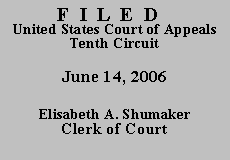

| KENNETH EUGENE BARRETT, |
|
| v. | |
| RAYMOND BARNES, |
In his amended complaint Mr. Barrett asserted that he had no access to the prison law library or to copies of his legal work, and that he had letters proving he was denied access. He also claimed to have exhausted his administrative remedies, stating: "Verbally asked and written. Have proff of it. But they ar evidence. Can't get copys to show you. As I have indacated before." R. Vol. I Doc. 6 at 4. The district court ruled that Mr. Barrett had not made "any colorable argument that he has exhausted his administrative remedies" nor had he cited any "authority or facts, other than his own conclusory allegations, to demonstrate he was denied access to those administrative procedures." R. Vol. I Doc. 16 at 2. Mr. Barrett neither submitted documentation of his efforts to exhaust his administrative remedies nor described his efforts to do so. On appeal he challenges the district court's finding that he did not exhaust his administrative remedies. His sole arguments are that he "did exhaust all of his addminastrative remeadies And has proff," Aplt. Br. at 3, and that if the district court had permitted him an evidentiary hearing he would have been able to show the court that proof.
The district court correctly ruled that under Fitzgerald v. Corrections Corp. of America, 403 F.3d 1134, 1139 (10th Cir. 2005), in order to allege exhaustion successfully Mr. Barrett must either "attach a copy of the applicable administrative dispositions to the complaint," or "describe with specificity the administrative proceeding and its outcome." (internal quotation marks and brackets omitted). Mr. Barrett did not meet this standard in district court, and his opening brief to us is hardly more specific. The district court correctly ruled that Mr. Barrett failed to exhaust his administrative remedies.
In Mr. Barrett's reply brief he makes two additional arguments: that the district court should have ordered a Martinez report, see Martinez v. Aaron, 570 F.2d 317, 319-20 (10th Cir. 1978), and that he should be excused for his failure to plead exhaustion because he suffers from a severe learning disability and did not have access to legal materials. But Mr. Barrett did not raise these arguments in district court, so we will not address them. See Simmat v. U.S. Bureau of Prisons, 413 F.3d 1225, 1240 (10th Cir. 2005).
We AFFIRM the ruling of the district court. We DENY Mr. Barnes's motion for leave to file a surreply.
ENTERED FOR THE COURT
Harris L Hartz
Circuit Judge
*.After examining the briefs and appellate record, this panel has determined unanimously that oral argument would not materially assist the determination of this appeal. See Fed. R. App. P. 34(a)(2); 10th Cir. R. 34.1(G). The case is therefore ordered submitted without oral argument. This order and judgment is not binding precedent, except under the doctrines of law of the case, res judicata, and collateral estoppel. The court generally disfavors the citation of orders and judgments; nevertheless, an order and judgment may be cited under the terms and conditions of 10th Cir. R. 36.3.